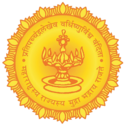Address at the ‘Cheti Chand Mela’ – The Sindhu New Year celebrations, organized by the Bhartiya Sindhu Sabha
Address at the ‘Cheti Chand Mela’ – The Sindhu New Year celebrations, organized by the Bhartiya Sindhu Sabha
Address by Shri CH. Vidyasagar Rao, Governor of Maharashtra at the ‘Cheti Chand Mela’ – The Sindhu New Year celebrations, organized by the Bhartiya Sindhu Sabha at Guru Gobind Singh Municipal School Ground, Opp PMC Bank, Next to Mulund Darshan Society, Mulund, Mumbai at 1800 hrs on Saturday 23 April 2016
Shri Kirit Somaiya, Hon’ble Member of Parliament, Sardar Tara Singh, Hon’ble Member of the Maharashtra Legislative Assembly, Elected Representatives and Councillors, Shri Radhakrishna Bhagia, All India Gen Secretary, Bharatiya Sindhu Sabha, Shri Ladharam Nagwani, All India Executive President, Bharatiya Sindhu Sabha, Shri Kishore Aswani, Organizing Secretary, Cheti Chand Mela, office bearers of the Bharatiya Sindhu Sabha, sisters and brothers,
Good evening, Namaskar, and Jay Jhulelal.
At the outset I offer my pranams to Sant Jhulelal and seek His blessings for all of us as we welcome the New Year.
I am immensely pleased to associate myself with the ‘Cheti Chand Jo Melo’ and rejoice with you on this day. I extend my heartiest greetings and good wishes to you on the happy occasion of Chetti Chand and the Sindhu New Year.
I congratulate the Mulund Unit of the Bharatiya Sindhu Sabha for its initiative in organizing the Cheti Chand Mela for this year and for the last several years.
The Bharatia Sindhu Sabha has been doing excellent work of uniting Sindhis and keeping the cultural traditions of Sindhis alive. The Sabha is making every effort to promote Sindhi language among the children and the youth and organizes important cultural programme during the year.
The Sabha deserves our whole hearted compliments for extending help to the needy and the poor for education and medical treatment. I am glad that some of the achievers and students who did well in studies are also felicitated. I congratulate each one of those who were felicitated today.
Ladies and gentlemen,
In the history of human civilization, few communities have suffered such trauma and pain as the Sindhis did, in the aftermath of the Partition of India.
For no fault of theirs, the most peaceful Sindhis were forced to abandon their home and hearth, and had to come to this part of India literally empty-handed. However to their supreme credit, the Sindhis not only picked up the lost threads, but on the sheer strength of hard work and determination, transformed themselves into one of the most successful communities in India. The Sindhis settled in different parts of India and wherever they went, assimilated with the local population and cultures, while also maintaining their identities and culture.
Acharya Kripalani had made two pertinent observations about the Sindhis. He noted the fact that the Sindhis made good progress without any help from the Government. Secondly, he noted, very rightly, that no Sindhi after partition ever begged, he earned an honest living. That’s truly remarkable.
During the last sixty nine years since Independence, the Sindhis have made spectacular contribution to the socio-economic progress and development of India, development of Maharashtra and development of Mumbai.
Speaking for Mumbai, I will say, the socio- economic history of Mumbai, after 1947, would be incomplete without glorious references to the multifaceted contributions of the Sindhi community.
Members of the community, particularly Barrister Hotchand Advani, Principal K M Kundnani, Dr L H Hiranandani and others formed several educational institutions in Mumbai and Ulhas Nagar. Apart from serving the immediate purpose of offering employment to the displaced Sindhis, these institutions went on to emerge as top class educational institutions in Mumbai.
During the last six decades, the Sindhi minority educational institutions in Mumbai have rendered outstanding service to society and earned a place of respect in society.
The Sindhi community has given the nation some of the most prominent politicians like Jairamdas Daulatram, Acharya J B Kripalani, Lal Krishna Advani, – with whom I served as Minister of State, Home Affairs in the government led by Shri Atal Behari Vajpayee, – K R Malkani and so on. It has also given the nation great personalities like Sadhu Vaswani, Dada Vaswani, Barrister Ram Jethmalani and many others.
In fact there is hardly any field which has not been touched or conquered by the Sindhis.
Today I have come here especially to tell all my Sindhi brothers and sisters that, Mumbai is proud of all of you, Maharashtra is proud of you and the entire nation is proud of you.
Ladies and gentlemen,
One of the major fallout of the Partition of India was that the Sindhi community got scattered to different places. Today Sindhis have become global citizens, they have thrived and prospered in many countries of the world. However, this has created a new challenge for all of you. Preserving ‘Sindhiyat’ the rich culture, traditions and most importantly the Sindhi language has become a challenge for all of us. We need the support of every member to preserve Sindhiyat.
A lot will have to be done to promote and popularize the Sindhi language, particularly among the young generation. We have to encourage and attract the best and the brightest students and youths to the study of the Sindhi language so that we will have a generation of youths who will take pride in the rich literature, history, culture and art of the Sindhi community.
I read about the Indian Institute of Sindhology based in Adipur, Gandhigram in Gujarat. The Institute is engaged in preserving and promoting the Cultural heritage of Sindhi Community and ensure its continuity by disseminating it in the younger generation.
I think, we in Maharashtra, must create a similar Institute for Sindhi Language and Culture in Mumbai.
As Chancellor of Universities in Maharashtra, I will extend my full support and cooperation to such an Institute as and when it is proposed.
Today, it is easy to learn a foreign language in Mumbai. There are institutes dedicated to provide short term and long term programmes in German, French, Spanish and other languages. But it is difficult to find institutes offering short duration programmes to learn Indian languages like Sindhi.
I wish and hope that the Bhaatiya Sindhu Sabha will encourage non-Sindhi students to learn and understand Sindhi language and culture. It should offer scholarships for students pursuing studies in Sindhi language and culture.
We will have to think how technology can help us to reach out to the new generation and promote Sindhi language and literature. Thought will have to be given to starting a global portal to connect the members of the Sindhi community settled all over the world.
Today television has become an effective medium for communication, and I would appeal to the community leaders to start a Sindhi channel for advancing the cause of Sindhi language, culture and literature.
History informs us that Sant Jhulelal stood up against the tyranny of the rulers and protected the religion and members of the community, through his message of peace and courage. We must also organize programmes and kirtans to spread the spiritual teachings of Sant Jhulelal among the masses.
Today Government has launched the Start Up India campaign to promote enterprise and industry. I think, the Sindhis were pioneers in Start Up revolution. Members of the Sindhi community must encourage others to become entrepreneurs and contribute to the progress of the nation.
Today all of you are in a festive mood and waiting for the cultural programme. I congratulate you once again and wish you a very Happy New Sindhi Year.
Thank you.
Jai Hind. Jai Maharashtra



